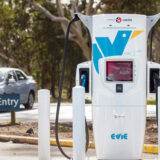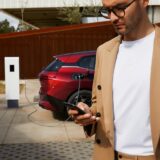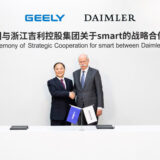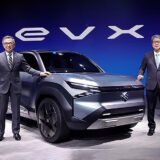VW to create NEV portfolio of 40 locally produced models in China in 7-8 years
Volkswagen Group China announced that it will introduce in excess of 20 more New Energy Vehicles (NEVs) between 2020 and 2025, creating an NEV portfolio of almost 40 locally produced models in China in the next seven to eight years.
To meet this enormous requirement for battery capacity, the group has started a global tender process for long-term strategic partnerships – including in China.
Volkswagen Group China and its joint venture partners will invest more than EUR10 billion (USD11.7 billion) in the industrialization of e-mobility between now and 2025.
“China is leading the way to the final breakthrough in the adoption of e-mobility and Volkswagen Group China is determined to be at the forefront. Together with our long-term joint venture partners, SAIC VOLKSWAGEN and FAW-Volkswagen, and our new cooperations, we are transforming the future of mobility and, in regard to the needs and demands of our customers, we will deliver,” said Jochem Heizmann, member of the Board of Management of Volkswagen AG, as well as president and CEO of Volkswagen Group China. Heizmann spoke yesterday during the Group Media Workshop on the eve of the Guangzhou Auto Show.
The event also welcomed Volkswagen Group China’s third vehicle manufacturing joint venture partner, JAC. The new joint venture will help Volkswagen reach its goal of setting up a broad and customer-oriented portfolio of pure battery cars by producing vehicles for the competitive mass market. The first model will hit the market next year.
Continuing the group’s rapid expansion into the mobility services area, Volkswagen Group China also announced the establishment of the brand ezia to provide intelligent mobility services in China. ezia brings together all the activities of Mobility Asia, a member of Volkswagen Group China. It will create an innovative dual ecosystem that provides customers with seamless access to a wide range of smart mobility services.
The event also showcased an impressive line-up of new models as the group continues its SUV strategy to meet the current demands of customers.
Volkswagen announced sweeping plans to build electric versions of all 300 models in the 12-brand group’s lineup in September, vowing to invest EUR20 billion (USD23.5 billion) by 2030 to roll out the cars and another EUR50 billion (USD58.8 billion) to buy the batteries needed to power the vehicles.
In May, Volkswagen received a green light from the Chinese government to set up a joint venture with the state-owned Chinese automaker to make electric cars.
Volkswagen will introduce 15 models based on its MQB platform, which converts internal combustion engine cars into plug-in hybrid or pure electric versions, said Heizmann. The rest of the models will be developed on new platforms, he said.
In September, China unveiled a comprehensive set of emission rules and delayed a credit-score program tied to the production of electric cars, giving manufacturers more time to prepare to phase out fossil-fuel powered vehicles. Under the so-called cap-and-trade policy, automakers must obtain a new-energy vehicle score — which is linked to the production of various types of zero- and low-emission vehicles — of at least 10% starting in 2019, rising to 12% in 2020.
By delaying the implementation year to 2019 and allowing carmakers to combine credits in 2019 and 2020, it’s no longer a major challenge for Volkswagen to fulfill the demand, said Heizmann. It’s a tough target for Volkswagen to achieve the average fuel consumption level of the fleet at five litres per 100 kilometers by 2020 and the automaker is looking at all technologies to improve fuel consumption efficiency of internal combustion engine vehicles, Heizmann said.
Bloomberg New Energy Finance forecasts that adoption of emission-free vehicles will happen more quickly than previously estimated because the cost of building electric cars is falling fast.














